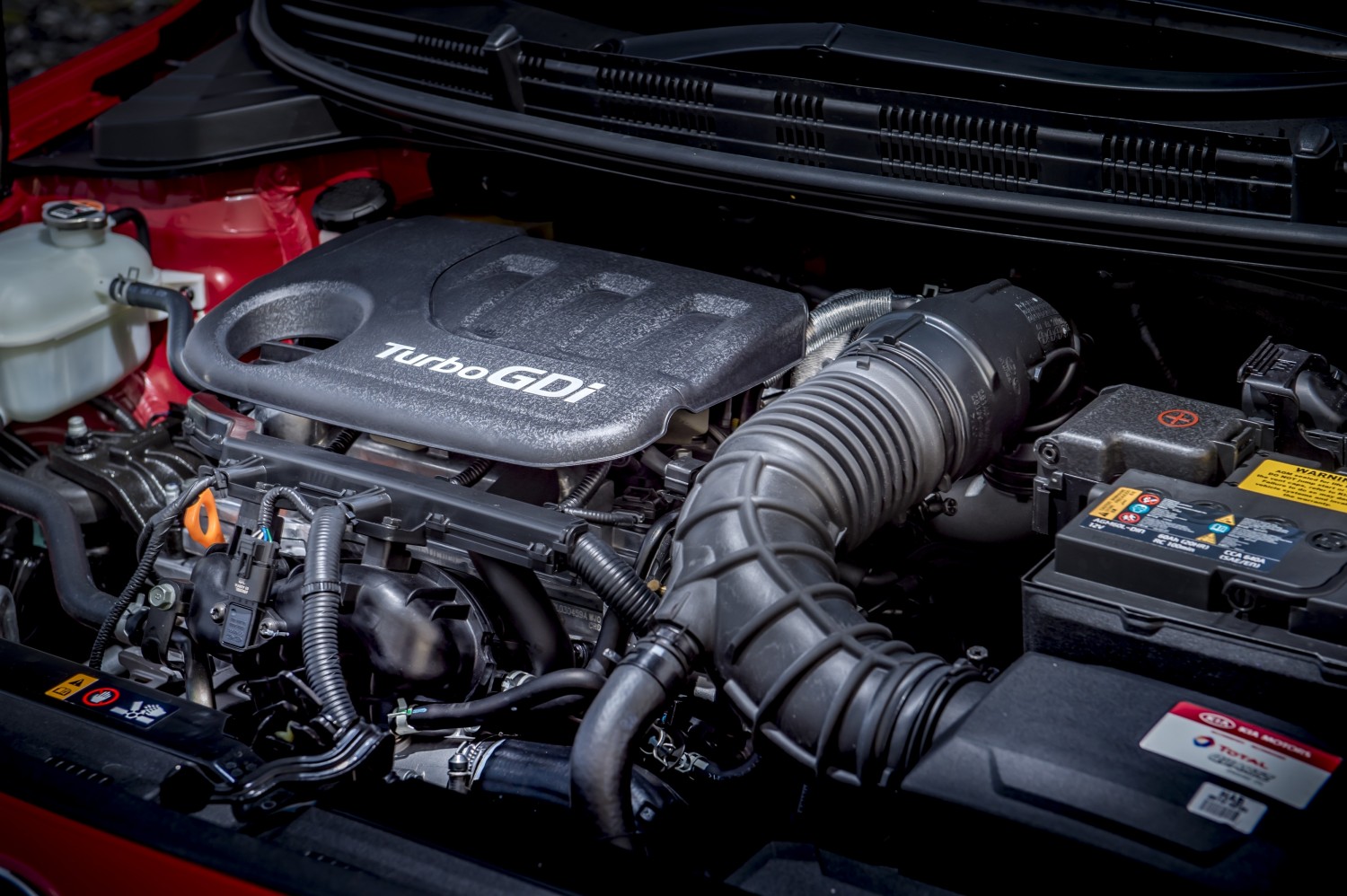
Tüm 1.0 turbo motorların karşılaştırması
Çok değil, 3-5 sene evveline kadar hacmi nedeniyle tiye aldığımız 1.0 motorlar bugün etrafımızı sarmış vaziyette. Downsizing akımının nihai temsilcisi olan bu ünitelerle genelde A ve B, hatta bazen C segmentinde bile karşılaşıyoruz. Yerini aldıkları 1.4–1.6 atmosferik benzinlilere nazaran daha yüksek tork sundukları ve emisyonları düşürdükleri doğru. Ancak hacim azaldıkça ve arabanın ağırlığı arttıkça, aynı performansı elde etmek için motora binen yük, yani stres de artıyor ve bu da uzun vadede dayanıklılık sorunlarına yol açıyor. Lakin her 1.0 aynı değil; bazıları diğerlerinden daha sağlam bir yapıda.
Gelin birlikte, piyasada yaygın olarak karşılaştığımız bu tip güç ünitelerini inceleyelim. Toyota ve Suzuki gibi bazı başka markaları da 1.0 turboları var, ancak ülkemizde hemen hiç bulunmadıkları için aşağıda yer vermedim.
Fiat (1.0 FireFly Turbo)
Teknik Spesifikasyonlar:
- Motor Tipi: 1.0L, 3 silindirli, turbo.
- Güç: 100-120 HP.
- Tork: 190 Nm.
- Triger Mekanizması: Zincir.
Kullanıldıkları Modeller:
- Fiat Egea
- Fiat 500 ve 500X
Sorunsuzluk Durumu:
- Sorunlar: Bazı kullanıcılar supap kapağı diyaframı delinmesi sonucu yağ yakma, zincir kopması ve motor takozlarının kırılmasından şikayetçi.
- Geri Çağırma: Yok.
- Geliştirmeler: 1.3-litrelik 4 silindirli türevin de yer aldığı FireFly motor ailesi, yakıt verimliliği ve emisyon normlarına uyum sağlamak için 2020’lerde geliştirildi.
Ford (1.0 EcoBoost)
Teknik Spesifikasyonlar:
- Motor Tipi: 1.0L, 3 silindirli, turbo.
- Güç: 100-140 HP.
- Tork: 170-200 Nm.
- Triger Mekanizması: Islak tip triger kayışı.
Kullanıldıkları Modeller:
- Ford Fiesta, Focus, Puma, EcoSport, Mondeo
Sorunsuzluk Durumu:
- Sorunlar: Islak tip triger kayışının yağ ile temas sonucu aşınması, soğutma sistemi problemleri ve erken turbo arızaları yaygın.
- Geri Çağırma: Ford, özellikle 2012-2016 arası EcoBoost motorlu modellerde soğutma sistemi problemleri nedeniyle geri çağırmalar yaptı.
- Geliştirmeler: Daha evvelki makalemizde de paylaştığımız gibi, 2018-2019 sonrasında ıslak kayıştan zincire geçildi ve soğutma sisteminde iyileştirmeler yapıldı. Ancak yağ pompası halen yağ içinde çalışan bir kayış kullanıyor.
Hyundai/Kia (1.0 T-GDI/Kappa)
Teknik Spesifikasyonlar:
- Motor Tipi: 1.0L, 3 silindirli, turbo.
- Güç: 100-120 HP.
- Tork: 172 Nm.
- Triger Mekanizması: Zincir.
Kullanıldıkları Modeller:
- Hyundai i10, i20, i30, Kona, Venue
- Kia Ceed, Picanto, Rio, Stonic
Sorunsuzluk Durumu:
- Sorunlar: Direk enjeksiyon sisteminde karbon birikimi ve turbo çatlamaları nadir de olsa rapor edildi.
- Geri Çağırma: Yok.
- Geliştirmeler: Daha yüksek termal verimlilik ve partikül filtresi eklenerek emisyon düzenlemelerine uyum sağlandı.
Opel (1.0 ECOTEC/SIDI Turbo)
Teknik Spesifikasyonlar:
- Motor Tipi: 1.0L, 3 silindirli, turbo.
- Güç: 90-115 HP.
- Tork: 170 Nm.
- Triger Mekanizması: Zincir.
Kullanıldıkları Modeller:
- Opel Corsa, Adam, Astra
Sorunsuzluk Durumu:
- Sorunlar: Opel'in direkt enjeksiyonlu (SIDI) diğer 1.4T ve 1.6T motorlarında olduğu gibi, bu ünitede de ülkemizdeki düşük oktanlı benzin ve yanlış yağ kullanımı sonucu ortaya çıkan LSPI (düşük hızda erken ateşleme) sorunu, vuruntu ve nihayetinde piston kırma ihtimali mevcut.
- Geri Çağırma: Yok.
- Geliştirmeler: Çok geçmeden yerini Stellantis'in 1.2 PureTech'ine bırakmış olan bu GM motorunda herhangi bir değişiklik yapılmadı. Ancak bu ünite halen bazı Çinli MG modellerinde kullanılıyor.
Renault/Dacia/Nissan (1.0 TCe)
Teknik Spesifikasyonlar:
- Motor Tipi: 1.0L, 3 silindirli, turbo.
- Güç: 90-130 HP.
- Tork: 160-200 Nm.
- Triger Mekanizması: Zincir.
Kullanıldıkları Modeller:
- Renault Clio, Captur, Arkana
- Dacia Sandero, Duster
- Nissan Micra, Juke
Sorunsuzluk Durumu:
- Sorunlar: Özellikle CVT (X-tronic) şanzımanlı ve 100 HP'lik Clio 5 1.0 TCe'lerde, silkeleme/vuruntu/rölantide aşırı titreşimli çalışma ve kronik turbo wastegate arızası mevcut. Bu ünitenin 90 ve 100 beygirlikleri endirekt enjeksiyon sistemine sahip ve LPG uyumlular. 115 HP ve üstüyse direkt enjeksiyonlu. Yakıt tüketimleri fabrika verilerinden belirgin ölçüde yüksek.
- Geri Çağırma: Kapsamlı bir geri çağırma bulunmamakla birlikte, 2023'te vuruntulu çalışmaya dair bir yazılım güncellemesi yapıldı ancak kullanıcılar bunun bir faydası olmadığını, bazılarıysa güncelleme sonrası performans düşüşü bildirdi. Araç garantideyse turbo değişimi yapılıyor.
- Geliştirmeler: Motorun termal verimliliği artırılırken, partikül filtresi ile emisyon oranları düşürüldü.
VW Grubu (1.0 TSI)
Teknik Spesifikasyonlar:
- Motor Tipi: 1.0L, 3 silindirli, turbo.
- Güç: 90-115 HP.
- Tork: 175-200 Nm.
- Triger Mekanizması: Kayış.
Kullanıldıkları Modeller:
- VW Polo, Golf, T-Cross
- Škoda Fabia, Scala, Kamiq
- SEAT Ibiza, Arona, Leon
- Audi A1, A3, Q2
Sorunsuzluk Durumu:
- Sorunlar: Bazı modellerde karbon birikimi ve turbo arızası bildirildi. Titreşimden ötürü sık motor takozu değişimi gerekebiliyor. Önceki makalemizde belirttiğimiz gibi, 2020 öncesi versiyonlarda termostat arızası yaygın.
- Geri Çağırma: Yok.
- Geliştirmeler: 2020'den itibaren motor verimliliği iyileştirildi, gürültü seviyesi azaldı ve EU6 emisyon standartlarına uygun hale getirildi.
Hangisi daha sorunsuz?
Tüm bu bilgiler ve kullanıcı geri bildirimleri ışığında, en dayanıklıdan en problemliye doğru kabaca bir sorunsuzluk sıralaması yapacak olursak:
- Hyundai/Kia – En az şikayet bunda ancak halen ortalama 200.000 km'lik bir motor ömrü mevcut.
- Volkswagen Grubu – 2020 öncesi termostat sorunu hariç problemsiz ve tüketimi düşük.
- Renault/Dacia/Nissan – Clio 1.0 TCe'deki wastegate ve aşırı titreşim problemlerine dikkat edilmeli.
- Fiat – Devir çevirme iştahıyla keyifli ancak yağ eksiltme problemine zamanında çözüm bulunmalı.
- Opel – LSPI sorunu Dexos 1 Gen 2 yağ, oktan artırıcı ve farklı bujiyle kısmen bertaraf edilebilse de, en riskli motorlardan biri.
- Ford – 2018'den itibaren yeniden tasarlanmış olsa da, halen arıza çıkartmaya en müsait 1.0.
Dediğim gibi, bu sıralama herhangi bir bilimsel veriye dayanmıyor ve tamamen yaptığım araştırmalardan çıkardığım öznel sonucu yansıtıyor. Ayrıca, Opel ve Fiat'ın 1.0 ünitelerinin, diğerlerine kıyasla çok daha az sayıda otomobilde kullanıldığı da unutulmamalı.
Kaynaklar


13 Yorum